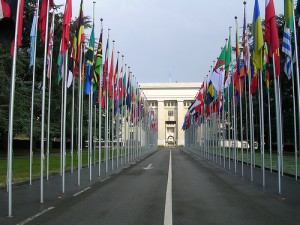Mubarak Baloch
Afghanistan’s widening instability is now probably going to witness a possible shrinkage as reports are that Afghan Unity Government (AUG) has had at least two rounds of sittings with Taliban leadership in Doha (Qatar) to reach an accord for permanent peace in country. Three days back “The Guardian” published a news item regarding restart of peace talks which caused a flurry of rumors questioning the authenticity of report. AUG has confirmed that talks are being held with Taliban. Tehreek-e-Taliban Afghanistan (TTA) spokesman Zabihullah Mujahid rejected such rumors of having secret peace talks with AUG. He in a statement reiterated that TTA has been holding fast with its demands including withdrawal of foreign forces from country as pre-condition for any negotiated settlement of Afghanistan issue.
If true Afghanistan government is probably first time going for peace parlays with TTA without availing the facilitative role of Pakistan. The talks for permanent peace in Afghanistan are also encouraged by American leadership for obvious reasons. Since foreign troops are scheduled to stay in Afghanistan till 2020 and TTA has probably a realization that its armed struggle may not prove effective to compel coalition forces to withdraw. Taliban leadership has probably a reason to believe that next American administration is also unlikely to introduce a major ‘policy shift’ on Afghanistan. Hence as a Hobson’s choice Taliban have probably decided to go for peace talks. Though their spokesman has, on the record, denied such reports. The confusion is persisting with regard to Pakistan’s role in ongoing reported peace talks. Islamabad has possibly decided to keep hands off and observe the situation likely to unfold in days to come. In the face of this ‘The Guardian’s’ report is part of intended leak to see the reaction of Pakistan and other neighbouring countries. Taliban militia has some upper hand in Lashkrgah area of Helmand and nearby areas of Kunduz provinces. Reports from battle fields are that government forces could not sustain Taliban’s occasional onslaught and Afghan national army is on retreat. Though Taliban are unlikely to inflict any major setback upon AUG at battle fronts yet their forays at the same time would certainly prove unsettling for Afghanistan government.
Hypothetically if Taliban and AUG going to have a peace agreement then where would Taliban demand for expulsion of foreign forces stand. Besides, how much political space the erstwhile components of Northern Alliance now in AUG would concede to Taliban? How much of pie President Ashraf Ghani would afford to share with Taliban? The same question stands valid querying the level of leverage Americans are to hold for Taliban. In view of their policy shift from Pakistan to India Americans are in quest for peace in Afghanistan so that some alliance is cobbled together to oppose China’s rise in the region. Pakistan’s aspiration to see peace in Afghanistan with a friendly government in Kabul is justified. With this the anti-Pakistan proxies in Afghanistan presently following subversive diktat of India would also stand marginalized. But again Indian influence over incumbent government in Afghanistan is likely to do as stumbling block as New Delhi’s comfort lies in the discomfort of Islamabad. It is imperative for regional peace that Afghanistan government should not allow its soil for being used against Pakistan or against any other neighbour country.
But again skepticism has wide room with regard to news about Taliban’s ongoing peace talks. Three days back a section of print media reported that a three member Taliban delegation from Qatar reached Islamabad to discuss some issues with Pakistani authorities related to the arrest of few Taliban leaders. Notwithstanding above Taliban resolve might have got weak after Gulbadin Hekmatyar of Hizb-e-Islami finally made peace deal with AUG. Hekmatyar’s party Hizb-e-Islami prior to his peace deal was quite dormant and had almost given up armed resistance against unity government. He was also not in any alliance with Taliban as a part of joint endeavor against Mr Ghani’s government. Hence Hekmatyar’s renunciation of armed struggle and subsequent peace deal is unlikely to have caused dampening effect on Taliban’s fighting fang and morale. In such a scenario question surfaces as to why Taliban are holding peace talks as they haven’t suffered any major reverses at battle fronts. Also stands valid the suspicion about the consent of hard liner Taliban field commanders to Taliban leadership for peace talk. In such a case the likely split within Taliban ranks would go into ultimate favor of Afghan government. It is a huge change in the Afghanistan’s political horizon if Taliban are renouncing armed struggle and sitting for talks to reach a peace deal. It will be interesting to see how the negotiated peace deal in Afghanistan is going to hold in the face of divergent ideology held by Taliban and Afghan unity government.



